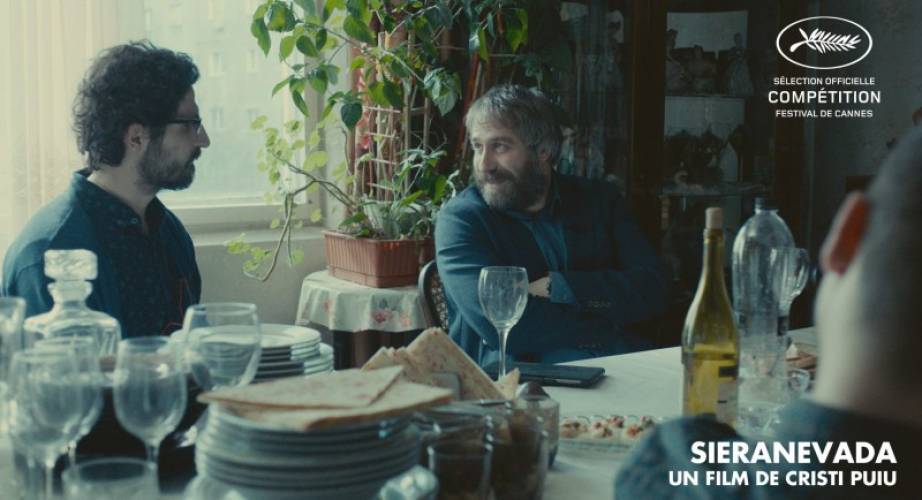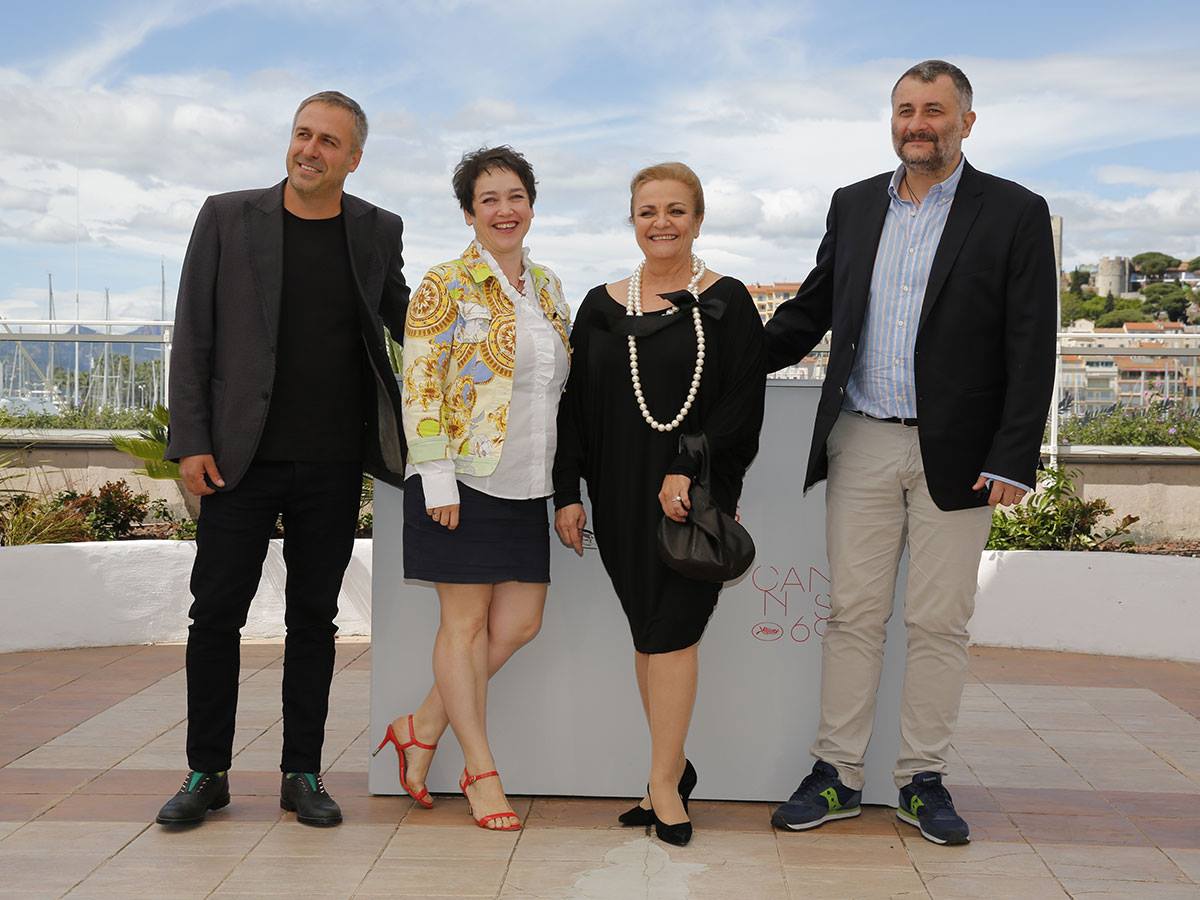Revistă online editată de Uniunea Cineaștilor din România
 Romanian critic, before plunging into the fight-endurance exercise that a great festival implies, including its effervescence, like the one from the Croisette. The unprecedented high security measures shadowed the usual glitter a bit, but life is still at high voltage here and now. So, I thank the critic Jean-Philippe Tessé for the paragraph which recaps briefly and to the point the Cristi Puiu`s journey and importance for the history of our cinema with the Cannes festival. He says: : « Sieranevada is his first feature film in the official competition, but the story of his relationship with Cannes is a special one. When it selected The death of Mr.Lăzărescu in the Un Certain Regard section (where it received the Un Certain Regard Prize), the festival was opening up to the most important Romanian film of those years. But, on the same occasion, it missed out a possible Palme d`Or that two years later would be received by Cristian Mungiu`s 4,3,2, establishing thus the young Romanian cinema.
Romanian critic, before plunging into the fight-endurance exercise that a great festival implies, including its effervescence, like the one from the Croisette. The unprecedented high security measures shadowed the usual glitter a bit, but life is still at high voltage here and now. So, I thank the critic Jean-Philippe Tessé for the paragraph which recaps briefly and to the point the Cristi Puiu`s journey and importance for the history of our cinema with the Cannes festival. He says: : « Sieranevada is his first feature film in the official competition, but the story of his relationship with Cannes is a special one. When it selected The death of Mr.Lăzărescu in the Un Certain Regard section (where it received the Un Certain Regard Prize), the festival was opening up to the most important Romanian film of those years. But, on the same occasion, it missed out a possible Palme d`Or that two years later would be received by Cristian Mungiu`s 4,3,2, establishing thus the young Romanian cinema. Puiu will return in 2010, again at Un Certain Regard with Aurora (three hours of introspection that disappointed us). As a sign of the destiny, Puiu and Mungiu are now together in the official competition, (the latter is here for the third time), confirming (if we add Bogdan Mirică`s feature debut, Dogs, also in the Un Certain Regard section) the omnipresence of the Romanian filmmakers, true « bêtes à concours de Cannes ». I find the name of Mungiu`s film, Bacalaureat, quite natural ».
Puiu will return in 2010, again at Un Certain Regard with Aurora (three hours of introspection that disappointed us). As a sign of the destiny, Puiu and Mungiu are now together in the official competition, (the latter is here for the third time), confirming (if we add Bogdan Mirică`s feature debut, Dogs, also in the Un Certain Regard section) the omnipresence of the Romanian filmmakers, true « bêtes à concours de Cannes ». I find the name of Mungiu`s film, Bacalaureat, quite natural ». It`s great!, I heard a few times. Honestly, I didn`t expect anything else but this remark. I think it`s hard not to vibrate in front of a film that reveals to us a filmmaker, in his top shape, as they say in sport. It is the creation of an artist that comes from Cioran`s and Ionesco`s country; you can feel their echoes weaving into the film texture, where the existential bitterness meets the mundane absurdity, in order to dictate a bitter-ironical performance of the life that slips through our fingers, while we are swallowed up by the mediocrity of the nonsensical gestures, by the disability to communicate in other ways than the domestic or pretense profound ones. It is also a film of the formal virtuosity, in a perfect superposing over the layer of ideas. The members of the family invited to join the memorial service which is about to start, but which never does, bustle in an endless to and fro, from one door to the other of the small apartment from the Ceauşescu-style block of flats. We are the witnesses of a true Brownian movement of some beings, parents, sons, daughters, aunts, friends that bump into each other, as if trying to escape the tightness of a prison-space, searching behind every door an escape or a hiding place. It reminded me of an old animation film, Tango, made by a Polish great director, Zbigniew Rybczynski (Oscar 1980), where the camera seemed to chase the heroes.
It`s great!, I heard a few times. Honestly, I didn`t expect anything else but this remark. I think it`s hard not to vibrate in front of a film that reveals to us a filmmaker, in his top shape, as they say in sport. It is the creation of an artist that comes from Cioran`s and Ionesco`s country; you can feel their echoes weaving into the film texture, where the existential bitterness meets the mundane absurdity, in order to dictate a bitter-ironical performance of the life that slips through our fingers, while we are swallowed up by the mediocrity of the nonsensical gestures, by the disability to communicate in other ways than the domestic or pretense profound ones. It is also a film of the formal virtuosity, in a perfect superposing over the layer of ideas. The members of the family invited to join the memorial service which is about to start, but which never does, bustle in an endless to and fro, from one door to the other of the small apartment from the Ceauşescu-style block of flats. We are the witnesses of a true Brownian movement of some beings, parents, sons, daughters, aunts, friends that bump into each other, as if trying to escape the tightness of a prison-space, searching behind every door an escape or a hiding place. It reminded me of an old animation film, Tango, made by a Polish great director, Zbigniew Rybczynski (Oscar 1980), where the camera seemed to chase the heroes.